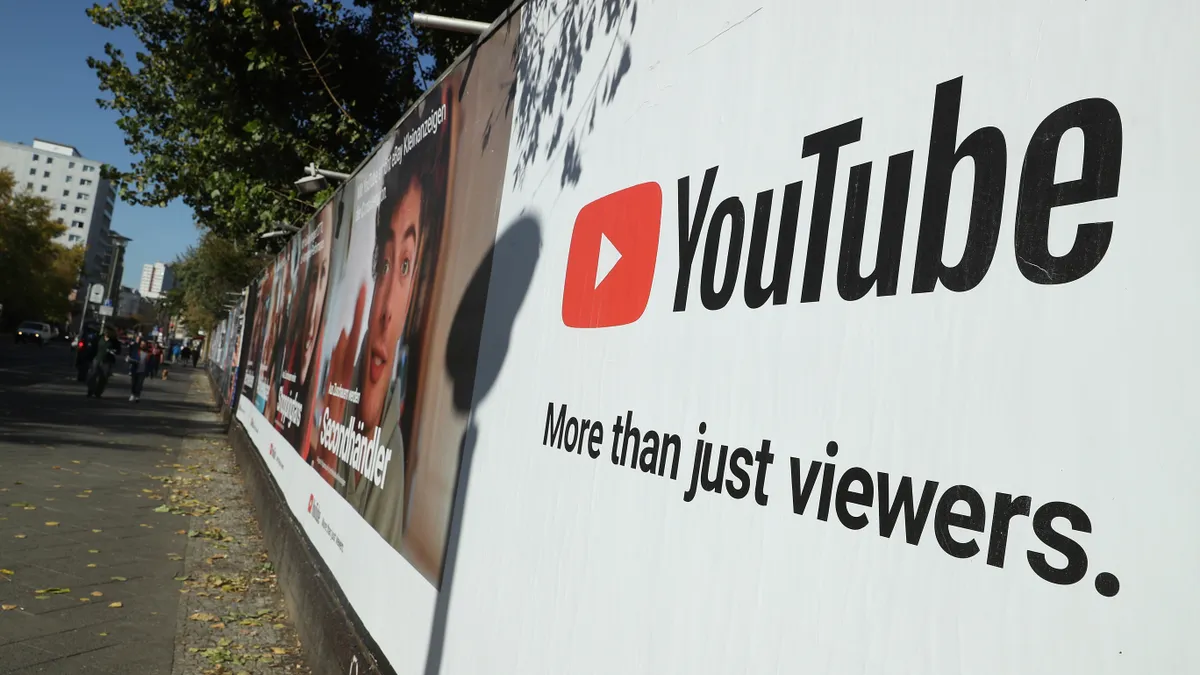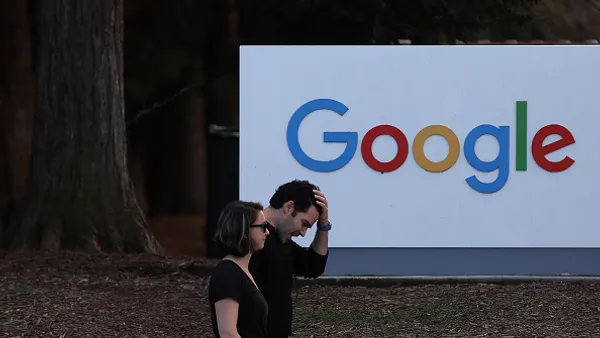Dive Brief:
- YouTube returned to growth in the second quarter, with ad revenue up about 4% year-over-year to $7.7 billion, according to an earnings statement from parent company Alphabet.
- Search and other, Google’s largest segment, grew 5% YoY to reach $42.6 billion, beating Wall Street’s expectations. The tech firm is investing heavily in generative artificial intelligence (AI) to overhaul search, including through an experimental Search Generative Experience (SGE) that executives indicated has delivered promising early results.
- Google announced it was promoting CFO Ruth Porat to president and chief investment officer, effective Sept. 1. In the newly created role, Porat will oversee investments in Google’s other bets portfolio and report directly to CEO Sundar Pichai.
Dive Insight:
After about a year of being a drag on Google’s performance, YouTube advertising bounced back in Q2. The platform’s gains arrived in the midst of a rocky ad market where many brands have clamped down on spending, with video typically being a pricier option. The earnings report overall showed Google in recovery mode after recently enacting a steep round of layoffs.
As in recent quarters, bets on the TikTok-like YouTube Shorts and YouTube’s connected TV (CTV) offerings were pointed to as strengths.
“[In] YouTube, we saw ongoing signs of stabilization in advertiser spending,” said Porat on a call discussing the results with analysts. “We are prioritizing product focus on increasing quality consumption of video content with both Shorts and in the living room, which is translating into improved monetization.”
Shorts is a relatively immature format and Google did not break out specific ad figures beyond suggesting that monetization is moving in the “right direction.” At least in terms of user engagement, the copycat product appears successful. Shorts are now watched by over 2 billion logged-in YouTube users monthly, according to Pichai, up from 1.5 billion a year ago.
YouTube’s CTV business also continues to gather momentum amid an uptick in cord-cutting. The addition of the NFL Sunday Ticket package, which customers could sign up for beginning April, might further shore up the appeal of the service as more premium live sports make the jump to streaming. YouTube’s deal around Sunday Ticket will factor in massively popular creators like MrBeast.
As Google finds its business footing again, it has also landed in the hot seat. Adalytics recently released a lengthy report that indicates Google’s video ad placement practices often fall afoul of its own promised quality standards. Rather than showing up in premium environments on YouTube, many video buys appear on low-quality sites or with the audio turned off, among other shortcomings, Adalytics alleges. Google has claimed Adalytics’ findings are based on faulty methodology. Still, the research has set off another round of discourse around a lack of transparency in the digital advertising space, where just a few large companies — including Google — stand dominant. The European Parliament began an audit of Google’s advertising following the report.
Executives were not questioned by investors about the Adalytics scandal. One area that did receive a lot of discussion was generative AI, which Google believes could reinvent its core search ecosystem. Google in Q2 began testing SGE, a ChatGPT-like interface for answering user queries in detail. The feature already runs ads in a limited capacity. Pichai emphasized that user feedback has been “very positive” so far and said that, since May, Google has reduced the time it takes to generate AI “snapshots” by half.
While the scope of generative AI’s impact on ads is hard to gauge at the moment, the executive underlined the monetization opportunity for brands. Google has rushed to prioritize generative AI following Microsoft’s early lead with the technology, which has been supported by a deep partnership with ChatGPT developer OpenAI and included an overhaul of Bing, a search rival.
“Many of these new queries are inherently commercial in nature,” said Pichai on the earnings call. “We have more than 20 years of experience serving ads relevant to users’ commercial queries, and SGE enhances our ability to do this even better.”
Google, Microsoft, OpenAI and Anthropic this week formed a new industry group around responsible AI practices. The companies, among others, recently met with the White House to discuss shared safety and transparency measures related to the technology.















